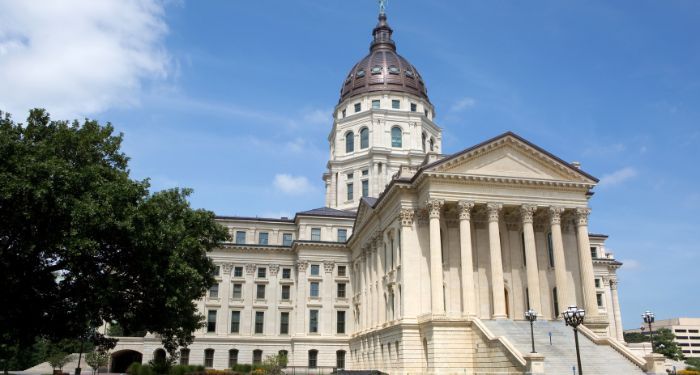
Kansas Legislators Introduce Anti-Book Ban Bill
Editor’s note: This story has been updated with additional information.
So far this year, several states have proposed anti-book ban legislation. Among them are Massachusetts, New Mexico, and Colorado. Another state–and perhaps one that might be somewhat surprising–has added a similar bill to their agenda this year, too: Kansas.
Senate Bill 358 is sponsored by Senator Cindy Holscher and seeks to curb book challenges in school and public libraries. It was inspired because of the growth of book challenges through the state initiated by people who did not live in the school districts where they were lodging complaints. In some cases, individuals would go school to school in an area and bring the complaints. The state has also seen an increase in harassment of library workers and educators, which the bill seeks to mitigate.
“This bill is intended to insure challenges brought forward are bonafide, by citizens/patrons of the library/district, and is supported by at least a segment of the citizens in the area (vs. just one individual as has often been the case in some of these challenges),” explained Holscher.
There are two components of the bill. The first part would put the onus of work on those who challenge books. They would be required to read the book in question in full, then they would need to submit a detailed list for why they believe the book does not belong in the public library. Individuals who file a complaint must be a resident of the community served by the library. They would also need to seek 5% of qualified residents to sign on to a petition. A similar process would apply to school libraries, requiring residency and petition signatures from at least 5% of qualified voters in the community to sign a petition before the book is considered for removal.
The second part of the bill lays out what criteria the library can and cannot use when determining whether or not to remove material. No books or other materials may be removed based on partisan or doctrinal beliefs, nor can items be removed due to the origin, beliefs, or background of the creator of the work. Libraries would be permitted to keep age-based restrictions on obscene or pornographic material–this is not only standard, but actually reinforces the fact that no books in school or public libraries meet the definition of obscene nor pornographic.
All together, the bill seeks to ensure diverse books–those which have been squarely targeted for removal over the last three+ years–would not be removed based on their inclusivity alone. Further, it would not allow piles of challenges to books to occur without the filer putting in the effort to read and articulate why those books are to be banned and have 5% of qualified voters agree. This aims to deter outside actors from spending the time and tax money of schools and libraries on reviewing materials when it’s part of a coordinated effort.
The only thing missing from the bill is a note that the points brought up during a book challenge are not plagiarized from Moms For Liberty’s BookLooks or from RatedBooks and similar “review” sites.
The American Library Association recorded eight attempts to restrict access to books in Kansas between January and August 2023 alone, with 28 book titles challenged. This placed the state among the middle percentage for censorship attempts in this time frame. PEN America recorded seven book bans in school districts during the 2022-2023 school year. Among the institutions that experienced book challenges and bans in the last year are Goddard School District, Gardner Edgerton School District 231, Salina School District, Shawnee Heights Unified School District 450, Derby Public Schools, Oakley Public Library, Blue Valley Unified School District 229, Leavenworth School District, Seaman School District, and St. Mary’s Public Library (where retaliation over funding happened because they refused to remove LGBTQ+ books). Most, if not all, book removals and challenges in these cases would be out of compliance with the law. A pair of librarians in Sterling, Kansas, also lost their jobs last year because of a display in the public library that featured rainbow colors. The display promoted autism awareness, but one board member believed it “had connotations of maybe some LGBTQ things.”
If you’re a Kansas resident, take 10 minutes to write your representatives in support of the bill, which was filed on January 18, 2024. It was referred to the Committee on Federal and State Affairs the following day. You have a wealth of statistics at your fingertips, including those found in the recent Book Riot x Every Library Institute research about how much libraries are supported by their communities.







